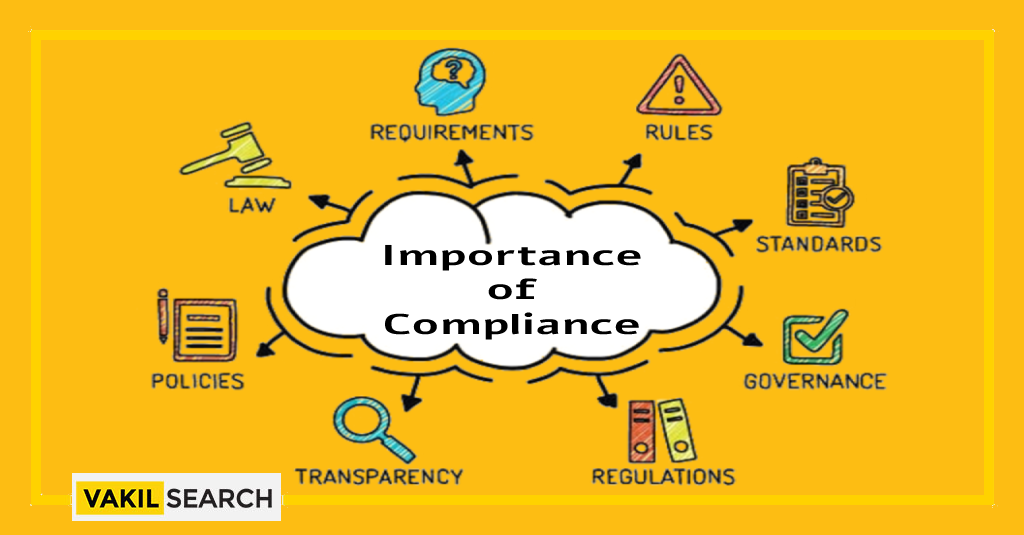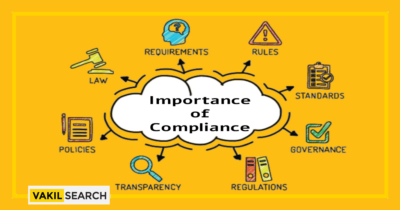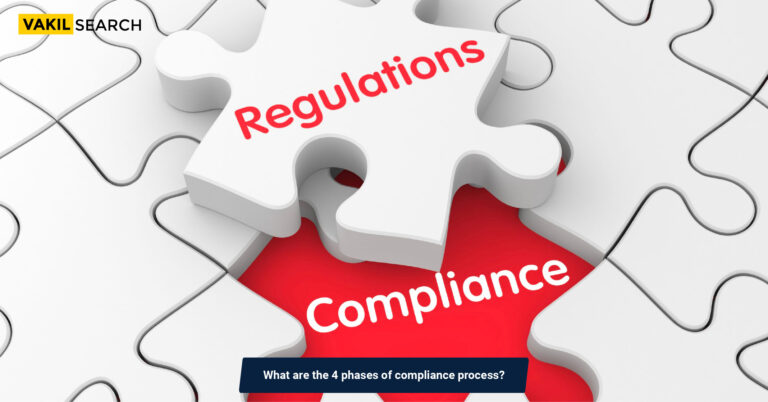Gain a competitive edge and safeguard your business's reputation by understanding the compelling benefits of prioritising compliance in today's dynamic and evolving business landscape.
Introduction
Its crucial for bussiness to know the Importance of Compliance. Compliance refers to adhering to the laws, regulations, and policies set by the government and industry standards. In today’s business world, compliance has become increasingly important as it can prevent legal issues, maintain a company’s reputation, retain employees, improve company culture, and increase productivity.
In this blog, we will discuss the five reasons why compliance is crucial for businesses today.
What is Compliance?
Compliance refers to laws and guidelines that forbid or control particular goods, services, or procedures. These restrictions are frequently legally enforceable and subject to enforcement by government agencies. Organisations may also establish internal rules to guide employee conduct. Regulatory bodies oversee compliance and monitor adherence to these rules.
Compliance in business can mean two things: as an ‘action’ and as a ‘standard.’ Compliance as an action involves consciously adhering to government laws, safety standards, and data requirements, essential for the legal and safe operation of a business. Meeting regulatory requirements establishes a positive reputation and underscores a company’s responsibility to both employees and clients.
On the other hand, compliance as a standard entails having a well-designed set of rules and policies to ensure security and stability within the organisation. Enforcing and consistently observing these standards are crucial, going beyond mere adherence to laws. Here are 5 reasons why compliance is important for your business:
Reduction in the Likelihood of Legal Issues
Non-compliance can lead to legal issues, resulting in hefty fines and legal penalties that can harm a company’s financial stability. Adhering to regulations, laws, and industry standards can reduce the likelihood of legal issues, ensuring the smooth functioning of a business. Compliance also helps companies to identify and mitigate risks, enabling them to prevent legal issues before they occur.
Compliance Issues Can Destroy a Company’s Reputation
Non-compliance can harm a company’s reputation, resulting in a loss of trust from customers, investors, and stakeholders. A damaged reputation can take years to rebuild, leading to a decline in business growth and profitability. Adhering to compliance standards can enhance a company’s reputation and create a positive image in the eyes of stakeholders.
Compliance Helps in the Retention of Employees
Compliance promotes a safe and healthy work environment, ensuring that employees are protected from harm. This can improve employee morale and job satisfaction, leading to increased retention rates. Employees are more likely to remain with a company that values their safety and well-being, creating a loyal workforce that contributes to the long-term success of a business.
Compliance Improves Company Culture
Compliance promotes ethical practices, ensuring that a company’s operations are aligned with its values and mission. This can improve company culture and create a positive work environment where employees are valued and respected. A positive company culture can also attract top talent, creating a competitive advantage in the marketplace.
Compliance Increases Productivity
Compliance can streamline operations, ensuring that a company’s resources are used efficiently. This can increase productivity, enabling a company to achieve its goals and objectives. Compliance also promotes transparency and accountability, ensuring that employees are aware of their roles and responsibilities, leading to a more productive workforce.
Importance of Compliance in Different Industries
Compliance is paramount across diverse industries, safeguarding ethical practices, ensuring legal adherence, and fostering public trust, thereby playing a pivotal role in sustaining operational integrity and long-term success. Here are some industries and roles of compliances in the same:
Healthcare Industry
In the healthcare sector, compliance is essential for safeguarding client confidentiality and maintaining organisational reputation. Hospitals, clinics, and laboratories can enlist cybersecurity specialists well-versed in federal and provincial legal requirements. Adhering to health and safety protocols is crucial to shield employees from workplace hazards like viruses.
Automotive Industry
Compliance in the automotive realm revolves around producing safe vehicles and incorporating mandated security features. Manufacturers must procure compliant parts, such as tires and airbags, from suppliers. By adhering to regulations and conducting rigorous testing, companies can position themselves as safety leaders in the industry.
Oil and Gas Industry
The oil and gas sector faces stringent regulations due to its potential environmental and health impacts. Regulatory bodies monitor workplaces to ensure adherence to safety and environmental laws. Companies implement internal divisions to ensure compliance with international standards, prioritising community safety and environmental protection.
Banking Industry
In banking, compliance is paramount for safeguarding customer assets and data. Stringent verification procedures are employed to prevent fraud and illegal fund activities. Banks also provide informed investment advice, considering clients’ risk tolerance and financial objectives, to ensure responsible investing aligned with regulatory standards.
Conclusion
At Vakilsearch, we understand the importance of compliance in building a successful business. We offer a range of compliance services, including legal compliance, tax compliance, labor compliance, and environmental compliance, to help businesses adhere to regulations, laws, and industry standards. Our team of experts ensures that your business stays compliant, reducing the risk of legal issues and protecting your reputation. Contact us today to learn more about how we can help you achieve compliance and build a sustainable business. We believe that compliance is not just a legal obligation, but also a critical component of building a responsible and ethical business. By adhering to compliance standards, businesses can demonstrate their commitment to social responsibility, sustainability, and ethical practices.
Frequently Asked Questions
Why is compliance important for businesses?
Compliance ensures adherence to laws, regulations, and standards, mitigating legal risks and fostering trust with stakeholders. Non-compliance can lead to fines, reputational damage, and even legal consequences, impacting operations and profitability.
What is the significance of compliance and its advantages?
Compliance promotes ethical conduct, protects against legal liabilities, and enhances organisational reputation. It fosters a culture of integrity, transparency, and accountability, attracting investors, customers, and employees, while also reducing operational risks and enhancing competitiveness.
What is the value of compliance?
Compliance instils trust and confidence in stakeholders, safeguarding the organisation's reputation and sustainability. It demonstrates commitment to ethical practices, legal obligations, and societal responsibilities, fostering long-term relationships and sustaining business growth amidst regulatory complexities and market uncertainties.
Why is it important to ensure compliance?
Ensuring compliance is crucial for upholding legal obligations, maintaining stakeholder trust, and sustaining business operations. It mitigates risks, prevents penalties, and preserves reputation, fostering a culture of responsibility and integrity essential for long-term success and growth in a dynamic regulatory landscape.
What is the most important task of compliance?
The most critical task of compliance is to ensure alignment with applicable laws, regulations, and industry standards. This involves comprehensive risk assessments, policy development, training, monitoring, and continuous improvement to uphold ethical standards, mitigate risks, and safeguard organisational interests effectively.










